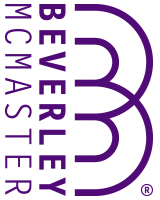Interoception - a starting point for personal growth
I wonder sometimes if I don’t bore my clients with my enquires into the sensations they can feel in their body. Instead of words such as tingling, tightening, bubbling, fizzing, or hot, chilled - just a tiny handful of the sensation words available, the questions often yield either an emotion e.g. ‘I’m frustrated’ or some kind of value judgement.
Why does this matter?
It was William James who said ‘without bodily sensation there could be no feeling of emotion’ and that the sensation arose from perception and its consequent interpretation. Perception - Interpretation - Sensation - Emotion - Action.
More recently Antonio Damasio concluded that the physiological reactions (sensations) in the body get laid down as somatic markers - or somatic memory - and when the same or similar event re-occurs, the body responds in the same way. A habituated response - no doubt developed for reasons of efficiency, connection and survival.
And just yesterday I heard about research into interoception - or the ability to tune into one’s internal body sensations which reveals a positive correlation between the inability to feel the inner sensations of the body and a negative body image. I’m going to be fascinated to see what else is discovered around this.
Sensations tell us the ‘big stuff’ e.g. when we are hungry or tired. But they also tell us other vital stuff. They tell us that there is something present that we care about.
Attuning to these bodily ‘early warning signals’ creates the possibility of a considered response rather than an unconscious automatic one.
The challenge is that many of us can’t notice the sensations within, let alone name them. We may have been trained to over-ride feelings (also numbing out sensations), or in the face of something so overwhelming, we learnt to shut down sensation for our own well-being - often a really clever safety strategy at the time, worthy of gratitude.
If I leave you with one thing - if I haven’t bored you too, perhaps today, check in with yourself, what sensations do you notice? Maybe it it’s only as simple as noticing how your feet are as they make contact with the floor, or maybe you can go a bit further and check your sensational response when you call to mind someone you love. Beginning to notice is a powerful starting point for choice and change.
How did I do - bore you too?
Are you the kind of leader others can stumble with?
Are you the kind of leader that others can stumble with?
Don’t we all need that? The kind of leader who will help us back up, keep us standing in our dignity when we have stumbled or fallen. This kind of leader is also likely to offer us a place to just show up, test and try things out, to explore a bit.
I’ve been thinking about the people in my life to whom I can more easily offer this this way of being, and where I have to work harder. What is it in our relationship and my own value system that facilitates or hinders this? How am I getting in the way? And then there are all the places I don’t have a handle on!
What got me on this track was a friend recently sharing that somebody she knew is known as the kind of person you could stumble with. What a wonderful description of humaness!
I don’t know her, but it sounds like she’s the kind of lady who can offer an unconditional acceptance of whoever she is engaging with, space, time and the capacity to set aside the kind of judgement that minimises or diminishes.
I’ll bet she’s far more than somebody you can stumble with too. I’ll bet she also has the kind of open-hearted leadership presence that just inspires self-belief, confidence and a kind of lightness that has you feel like you are walking on air and about 10 feet tall.
Do YOU know somebody like her?
The Un-Invited Guest - Somatic Coaching taught me about dignity and confidence
Photo by Omkar Jadhav on Unsplash
I had one job in which I felt like an outlier – an uninvited, but necessary guest.
There was a bullying culture, and I, with ‘youthful innocence’ was naturally inclined to speak the truth as I saw it, rather than as the bully would have it be. Gratefully, I had a mentor in situ who helped me temper my assertions.
Inside, however the experience chipped away. I started to doubt myself, to second guess my impact, that I was in fact welcome. That HR was welcome.
I remember girding myself, pulling up on the inside, making myself stand taller and more upright than was natural, straining taught into a shape of confidence and ‘authority’ even if I didn’t feel it.
The price, caused by too much tension, I paid later with back surgery and 12 months absence. Sometimes circumstances are such that we might actually need to extricate ourselves. My back extricated me.
Older and wiser, and with the gift of somatic coaching, I have learnt that dignity and confidence are bedfellows.
When we deeply commit to being who we are and how we can take a stand for that with grounded presence built from the inside, dignity and confidence cannot be taken away. We can be shaken of course, but somewhere the kernel that will bring us back to this truth remains.
Have you ever felt like the uninvited guest? What happened?
Somatic Coaching reveals where we resist and how it persists
Photo by René Ranisch on Unsplash
Deb runs a team. She’s ‘learnt’ that success comes from holding people to account, providing clarity and direction. She knows also that people need space for their own ideas and that a good manager will listen openly.
Deb believes she does all of this really well, resisting contrary feedback.
She resists it because she believes she is too soft. Deep down she knows that she cares about her people but to care is not valued – it’s soft. She over-compensates by being unreasonably demanding with her team.
What we resist persists. Deb is resisting the part that cares. She’s built a protective wall around this way of being so it can’t escape. If she’s too caring it’ll mean that she’s not a good manager. Which is not part of her plan.
Deb clamps her jaw and grinds her teeth. She fists her hands a lot, and if she paid attention she’d notice that her hips and lower back are tight.
Deb doesn’t notice much of what is happening in her body. Which is a shame.
When we resist we contract. Constant resisting, constant contraction. Constant contraction eventually leads to pain.
One of the promises of Somatic Coaching is that it reveals patterns of holding, and often the stories that enabled them over time. It teaches new ways of showing up, and if Deb could accept, even embrace the softer, gentler parts of her, she might find her body begins to relax. She might find other ways of being a ‘strong’ manager, without reducing her team’s sense of worth and value.
Have you ever resisted and to your cost?
Leadership offers the challenge of paradox
Image by Maike und Björn Bröskamp from Pixabay
29 hours listening to ‘The Promised Land’. (That's a lot of cooking, cleaning, home stuff done!) What repeatedly struck me was how often President Obama had to compromise, frequently in stark contrast to the idealism that he was called out on and criticised for. (What is wrong with idealism anyway?)
Like many leaders Obama was often faced with holding multiple perspectives at once, not one offering a perfect solution.
What is clear throughout the book is that he found a way to sit with all the discomfort and complexity, in part because of his own embodiment, in large part because around him he made sure there was deep discussion, diversity of thinking, robust challenge and quality reflection time.
I know it’s tempting to hold Obama on some kind of pedestal. I don’t want to do that here; there are certainly places in the book when you can see through some of the cracks.
But as we begin to navigate the challenge establishing a post-lockdown normal, there will be many paradoxes ahead with few perfect answers. They will ask us to dig into emotional maturity, deep self-awareness and, wisdom - all of which comes from within.
Ha, so what else is new 😉?
Mindfully creating more space
What sits between you and feeling OK right now? Perhaps you already do, but how about pausing here to check.
What does OK feel like on the inside? Is there anything here that is present and could unconsciously colour your judgement, perspective and action today?
Sometimes we can find that there are a multitude of priorities and concerns that are bumping up against each other for attention and we didn’t even notice.
Or maybe you are noticing. Big time.
I came across this as an exercise.
Take each one of those things, placing them inside a bubble - or a balloon? Take a moment to engage your imagination and place each bubble somewhere outside of you at what feels like the right distance. Don’t rush, or push, just let this come.
When you can see the bubbles, pause, check again is there more space on the inside now?
There is? OK, now, attune to which bubble of those on the outside really needs your attention and focus. If it’s a ‘to-do’ how is it to bring the bubble closer and then gently and calmly get on with it, knowing that all of those other bubbles are sitting on the outside, you can pick them up anytime, one at a time.
Drawn from the practice of Focusing, finding an internal felt-sense for our challenges, I wonder whether, when there is just too much, this small practice, might create some space, perspective and freedom to breathe?
The Veneer of Vulnerability
Image by Ivanov Velizar on Unsplash
What role are you living into? What ‘suit of clothes’ do wear to attend to work? Recent conversations catch me again reflecting how we live in a world of perception, masks and roles, and sometimes in that living we can lose connection with a part or parts of ourselves.
It’s easy to become wrapped up in the how of the ‘professional’ we believe we are supposed to be; we forget that behind it is a human with longing, yearning, vulnerabilities and frailties.
We know about the leadership books, the full to the brim self-help sections all designed to feed this search for Nirvana. The ‘how to’ of the roles that we each play; many of which can’t deliver because the book is only half of the solution.
I ask that I will never not be humbled at what is revealed when the veneer of the job title, the status is pulled aside. I observe with (self-)compassion and recognition that beneath all of this is a vulnerable, shaky human, just like me, full of longing, yearning, vulnerability and frailty.
Yes we can codify any one of the domains in which we need competence, the technical inputs, even relationship and people skills are codified, but when we strip it all back, it’s just one vulnerable being with another. The world is full of us.
Have you had a reminder lately?
Re-claiming Personal Boundaries
Image by Christopher Ross from Pixabay
“Back Off!” “No!” or any such words that declare a boundary. Personal boundaries and their actual physical violation have been in the news recently as we know.
Boundaries can be hard - to declare, to maintain, or get support for, sadly.
There are spaces in which boundaries remain fuzzy, sometimes usefully, but often, our stories get in the way of us declaring a boundary. Who we will be if we do so, how will we be perceived, can we really do that, does it align with who and how society tells us we ‘should’ be?
We begin to learn about boundaries as children - where we can and can’t assert, how and where we must mould, even sacrifice for the sake of adults on whom we rely and the society within which we operate.
When we become adults do we need to relearn how to reclaim our boundaries? Certainly it seems that women have some reclaiming to do; I don’t think they are alone.
I’d challenge anyone reading this post to not find at least one domain of their life where a firmer boundary is not needed. I coach in this, yet I could easily find areas of my life in which a clearer boundary would be better.
What do you think – are people generally skilful at boundaries – and by skilful, they can declare and hold them with respect and care for mutual dignity?
Do you invite in a new Quality for practice each year?
Monday was a funk, and then again Tuesday, especially Tuesday. Thinking about 2021 and what it held – or most likely wouldn’t. Sod New Year’s Resolutions!
I thought about how flexible we all still need to be (not that the world doesn’t ask this of us anyway), how many people still need to dig deep, find themselves down and pick themselves back up again. How resilience is being tested over and over. The capacity to bounce back, to reform.
Perhaps inspired by Forest Gump on TV again (life is like a box of chocolates, you never know what you are going to get) and with a box of Quality Street to dip into, I wondered about a quality that I might like to practice this year.
What might help as I walk the path of the next 12 months?
I’d like to invite in more grace and ease into my life. Whilst they are not new, life keeps testing my resolve towards them.
I’ve learnt that it is impossible to have grace and ease in my thoughts, words and actions if my body doesn’t feel and move in alignment. I have to bring a felt sense of them into my body.
Try it for a moment. We are a whole system.
I want to do this for me, but also, the spin-off is that others will experience it, from me to them.
Is there some kind of quality you would like to invite in this year?
Edited Original Photo by Ryan Stone on Unsplash
Are You THE Embodiment of what you commit to?
Photo by Vonecia Carswell on Unsplash
Say this out loud: “I am a commitment to my well being”. Then say this out loud: “I am committed to my well being”. What do you observe as you feel below your neck, how you say that? Which one is harder, asking more of you?
Those of us trained by the #strozziinstitute will know this phrasing, and how it invites us to become the embodiment of the commitment we want to live into.
Embodied commitments move us beyond the mental constructs of plans, vital as they are.
A commitment to being the commitment you make invites you to consider how you need to change your very structure. They are often a call to courage.
Competence gets built from the inside, leading to deeper authenticity and alignment emanating from your core.
Furthermore, living and embodying a commitment provides a much needed anchor when the sea is rough, the stars are hidden and the night is dark.
I invite you to try it out this frame choosing something that matters to you just a little out of reach. Notice whether it produces a little fizz of energy, maybe it’s a little scary. If so, that’s OK, you are in the right place.
Give it a go. I’ve only tested this out with clients – never on a platform like this, so genuinely, I’d love to know.
Are you yet the embodiment of your commitment?
Robert Maxwell - the embodiment of corporate villainy?
Image by pramit marattha from Pixabay
Corporate Villainy anyone? I’ve been slightly obsessed and engrossed. FALL on Audible is the story of Robert Maxwell. Goodness.
“Robert was the embodiment of that now almost vanished species, the media mogul“ Evening Standard on Fall by John Preston
“Maxwell was the embodiment of Britain’s post war boom” Penguin Books
Previous posts about embodiment have raised a few eyebrows, yet here are two statements that reflect upon the embodiment of this man.
What do they mean?
Think Murdoch for a moment. Another media mogul, but with a completely different embodiment, arising from a different set of life experiences and practices.
By the time of the trial of his sons Kevin and Ian, Preston refers to Maxwell, as having become in the eyes of the British public, the ‘embodiment of corporate villainy’. We might say he represented what we think of as corporate villainy.
We each embody different things, and arguably embodiment is in the eye of the beholder.
What do you need or want to be the embodiment of for whatever you are up to with your life?
It will take practice and, like the word em-bodi-ment suggests, it has to be done through the body. Learning and becoming through the body.
Hopefully not though, the embodiment of corporate villainy.
Anyone 😉?
Focusing - I'm stuck but it will move
Edited Original Photo by Izzy Gibson on Unsplash
For months now I have posted regularly on Linked In and here.
This week I find myself stuck. There is so much and there is nothing. So I drop into my Focusing practice and pay attention inside. What do I notice that is here, getting in the way of the stuckness.
I alight on something but it’s not that. So what else? And what else?
The Spring brought me energy, a lift, excitement, a turning towards the sun. I joke that it’s because I am a spring baby that I feel myself uncurl and expand, shaking out the winter greyness. So it was this year. And yet I wonder, was it a fleeting moment?
These last few days my mood has shifted. Have I put on a particular kind of lens over my seeing that is colouring my perception. I’ve been reminded again why I really do the work I do, why I have spent the last few years deepening into my capacity to hold the difficulty and the pain felt by clients. When we work through the body, the body reveals.
Underneath everything is a desire that I do my bit to help heal the trauma and the pain that people experience. That if there are enough of us out there we can stop it being perpetuated. To do that, I have to be able to be with the experience of those I work with.
This then is my stuckness. I have been sitting with this. I acknowledge and share, and beautifully, it moves.
"How are you?" "I'm fine." Emotion Speak?
How are you? I’m fine, doing OK. Recognise this? I’ll bet you do!
The lack of in person contact limits our ability, or so we believe, to really know whether the respondent is fine. And what of the questioner – fine to?
It is widely accepted that leadership requires emotional intelligence.
There are different models to help us define what that means but for this post I’d like to keep it really simple and focus on emotional literacy?
How many emotions can you name right off the bat? How many can you ascribe feelings or sensations to?
How about learning to recognise and name them? Pausing regularly throughout the day to ask how am I right now? What am I sensing in my body and then what emotion(s) arises? What is all this taking care of – because they are taking care of something?
Considered to be e(nergy-in-)motion, they are laden with information; taking on the challenge to develop literacy creates the opportunity to ‘have’ them, rather than they ‘have’ us.
Practice regularly and you’ll begin to notice how you are with more precision. You’ll also begin to find it easier to attune to the emotions of others.
Why does it matter? Because for leadership, such information gives more choice and greater possibility for action.
Would it make a difference to ‘ban’ ‘I’m fine’ as a response?























